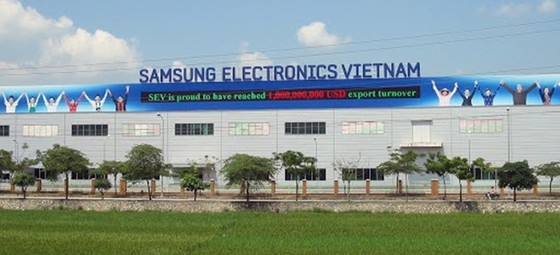Mr. Hong Sun, Chairman of the South Korean Business Association in Vietnam (KorCham), spoke with Saigon Investment to express his many views on this topic.
 |
JOURNALIST: - Sir, as a representative of South Korean businesses in Vietnam, how do you assess the current investment environment in Vietnam for its reform efforts?
Mr. HONG SUN: - The investment environment in Vietnam has improved a lot and is continuing to be improved more than before. The most progressive is the legal framework which has been consolidated and becomes clearer, which has helped foreign investors to feel more secure. But objectively speaking, when Vietnam wants to transform the economic structure from traditional industries in heavy processing such as apparel, shoes, and bags, to high-tech industries such as the manufacturing of chips and components to increase the value of electronic components and precision machinery, it is necessary to attract investors who are very large corporations in the world.
To do this, Vietnam needs to make more concerted efforts in improving the investment environment and stabilizing policies to create a vibrant investment atmosphere. Because at this time, Vietnam is competing with many other developing countries and also working with highly developed countries such as the US and the European Union countries. Therefore, the legal framework must have a strong foundation and remain stable. This is the first most important factor to consider as necessary and urgent.
In addition, the conditions to improve competitiveness in attracting high-quality Foreign Direct Investment (FDI) needs a systematic and methodical investment plan. Vietnam is currently facing fierce competition from several Asian countries in this regard, especially in energy infrastructure, specifically the electricity sector. Because high-tech industries such as chip manufacturing and precision machinery need adequate power supply so that the production line is not interrupted due to power failure. This requires Vietnam to focus on investment and set its own priorities to develop a suitable power supply system for production. Only then will foreign investors, especially very large corporations, feel secure about investing in Vietnam.
- Sir, recently South Korea became the largest investor in Vietnam. How do you assess the prospect of South Korean investment inflow into Vietnam this year and which areas are South Korean businesses most interested in?
- In recent years, South Korea has become the number one investor in Vietnam. The investment of South Korean enterprises in Vietnam is in many fields, from the processing industry, and manufacturing, to construction, banking, financial services, and in the high tech sector of electronics. South Korea is currently the largest foreign investment partner in Vietnam in terms of both registered capital and investment projects, with nearly 9,500 projects and more than US$80 bln in capital. In 2022, South Korea continued to invest in Vietnam with more than 370 projects, with total investment capital of more than $ 4 bln.
With the current comprehensive strategic partnership, the relationship between Vietnam and South Korea has developed strongly across many fields. In particular, the recent visits of senior leaders of the two countries has created a new impetus, and enriched bilateral cooperation, especially in trade and investments. The moving of leading South Korean companies into Vietnam with large investments is creating a premise for increasing sustainable development in the two countries, and at the same time showing that Vietnam is an attractive investment destination for South Korean businesses.
Economic prospects in the Vietnamese market are also assessed to be very bright. Many reputable financial and economic organizations in the world have shared this view that Vietnam's economic growth this year will remain at 6.2 percent to 6.3 percent. This shows a solid foundation for me to believe that South Korean investors will continue to expand their base in this market. However, at present, Vietnam is facing challenges from within. The legal framework of Vietnam, although it has been improved, is still incomplete.
South Korean investors want to see a more complete legal framework, and a more stable investment environment. For instance, the energy industry, especially electricity, is a field that many South Korean businesses are interested in, but Vietnam has not yet encouraged it. If there is a clear mechanism, a series of projects with billions of dollars of investment from South Korean enterprises will immediately pour into this field.
- Sir, could you tell us more about the current talk about Samsung moving production and part investment to India?
- According to my assessment, the level of consumption of Samsung in Vietnam as well as in the whole world market is very large. The market capitalization of this company is more than USD 20 bln, which is a huge amount. Over the last 30 years, Samsung has been constantly expanding globally, including in the Vietnamese market. Therefore, now in the new context this global corporation needs to regulate its terms of market share structure as well as output. Moving from one area to another, changing products is from a business perspective a long-term strategy of this company. Hence, Samsung's move to expand production to the Indian market is also their own productive strategy. But I think Samsung is still interested in operating in Vietnam.
In Vietnam, Samsung not only invests in market expansion and hardware production but also focuses more on software and technology. At the end of December 2022, Samsung implemented a project to build a Resource and Development (R&D) Center in Hanoi to attract hundreds of high-quality human resources. This was certainly a productive investment by Samsung in Vietnam.
- Thank you very much.
























